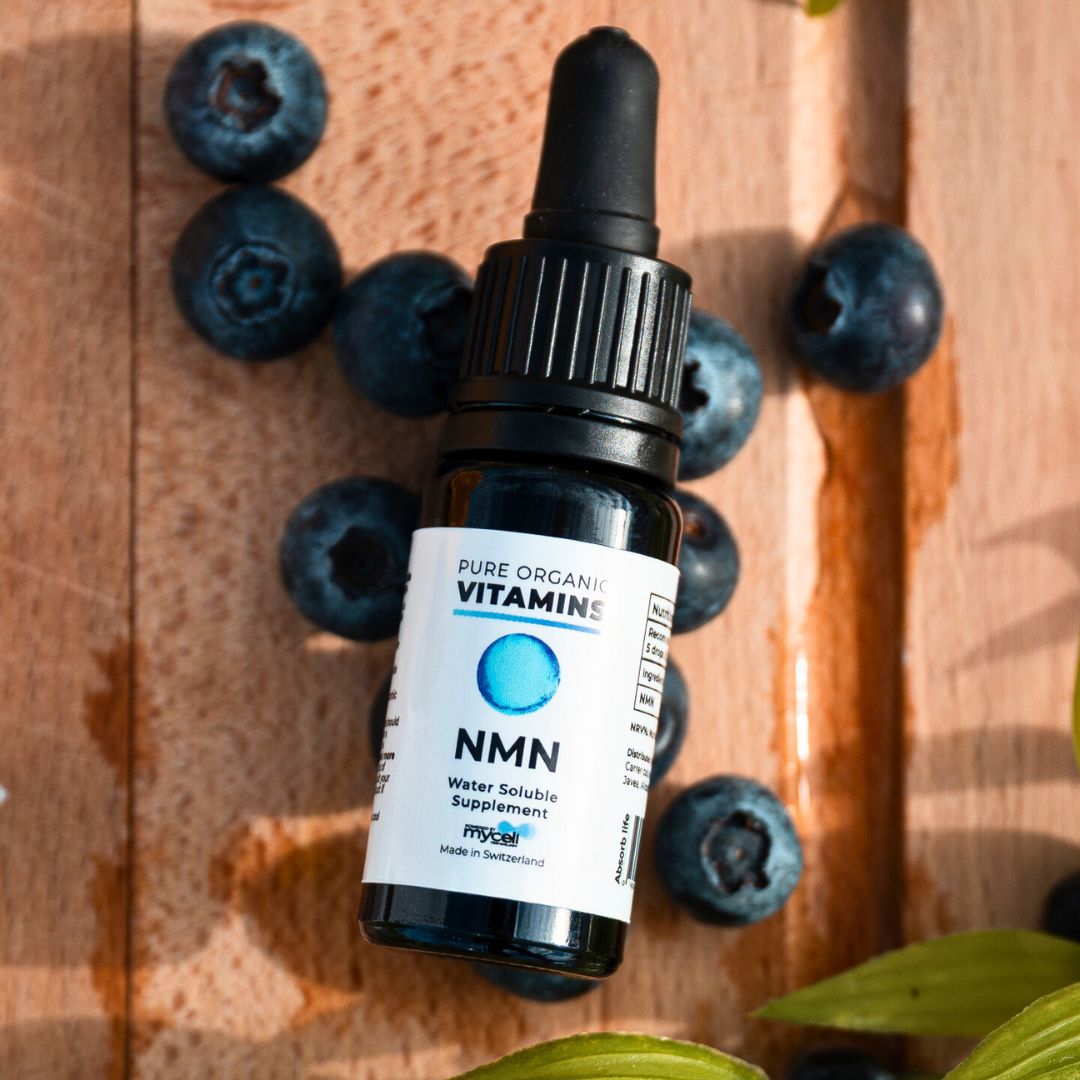Navigating the supplement aisle can feel like traversing a nutritional labyrinth. Faced with countless bottles promising various health benefits, consumers often grapple with a fundamental question: beyond the ingredients themselves, which form is best for optimal absorption and efficacy? While traditional pills and capsules have long dominated the market, a growing body of evidence and user experience points towards the superior advantages of liquid supplements.
In a world increasingly seeking more effective and convenient nutrition, understanding the nuances of supplement delivery is paramount. This article will delve into a comparative analysis, demonstrating why liquid supplements offer a significant edge over traditional pills in terms of bioavailability, digestive efficiency, nutrient retention, and overall user experience, ultimately leading to better health outcomes.
Bioavailability — The Science of Absorption
At the heart of supplement effectiveness lies bioavailability – the extent and rate at which a nutrient is absorbed into the bloodstream and becomes available for use by the body. It's not just about the quantity of nutrients you ingest, but the amount your body can actually utilize.
What is bioavailability and why does it matter?
Imagine taking a high-dose vitamin pill, only for a significant portion to pass through your digestive system unabsorbed. This is the challenge posed by low bioavailability. If your body can't effectively break down and absorb the nutrients from a supplement, you're essentially not reaping its full benefits, potentially wasting both your money and your efforts. High bioavailability, on the other hand, ensures that a greater percentage of the active ingredients reaches your cells and tissues, maximizing the supplement's impact on your health.
How liquid supplements bypass common digestive barriers
Liquid supplements offer a distinct advantage in the realm of bioavailability by largely bypassing several key digestive barriers that solid forms must overcome. Unlike pills and capsules that require disintegration and dissolution in the stomach before absorption can even begin, liquid nutrients are often presented in a pre-dissolved state. This allows for a more rapid and direct absorption process, primarily occurring in the small intestine, where the majority of nutrient uptake takes place. The readily available nature of liquid nutrients means they don't need to be broken down by stomach acids and enzymes to the same extent as solid forms, leading to faster and more efficient assimilation.
Pills and capsules: Why many nutrients are lost before absorption
Traditional pills and capsules face a more complex journey through the digestive system. The hard outer shell or compressed powder needs to break down, releasing the nutrients. This disintegration process can be influenced by factors like the tablet's coating, its hardness, and even the individual's digestive health. Furthermore, the released nutrients then need to dissolve in the gastrointestinal fluids before they can be absorbed through the intestinal lining. For poorly water-soluble nutrients, this step can be particularly challenging, leading to incomplete dissolution and reduced absorption.
Scientific studies comparing absorption rates
While individual absorption rates can vary based on numerous factors, a growing body of research suggests that liquid supplements often demonstrate superior bioavailability compared to solid dosage forms. Studies have shown that liquid formulations of certain vitamins and minerals can be absorbed significantly faster and to a greater extent than their pill counterparts. This difference is particularly pronounced for nutrients that are naturally less soluble or have larger molecular structures. The pre-dissolved nature of liquids allows for a more direct interaction with the absorptive surfaces of the intestine, leading to higher serum concentrations of the nutrients in a shorter period.
Digestive Efficiency & Speed
Beyond the overall amount absorbed, the speed and ease with which supplements are digested also play a crucial role in their effectiveness and user experience.
- Liquids begin absorption immediately in the mouth and stomach
One of the key advantages of liquid supplements is that the absorption process can begin almost immediately upon consumption. Certain nutrients can be absorbed through the mucous membranes in the mouth and the lining of the stomach, providing a faster entry into the bloodstream compared to pills that must travel further down the digestive tract before their components are released and absorbed. This rapid absorption can be particularly beneficial when a quick effect is desired.
- Pills require disintegration, which varies by coating and material
As mentioned earlier, pills and capsules must undergo disintegration – the breakdown of the solid form into smaller particles – before the nutrients can be dissolved and absorbed. The time this process takes can vary significantly depending on the type of coating used (e.g., enteric-coated for delayed release), the hardness of the tablet, and the materials used in its formulation. This variability can lead to unpredictable absorption rates and potentially lower overall bioavailability if the pill doesn't fully disintegrate in the optimal location within the digestive tract.
- Easier on sensitive stomachs and ideal for individuals with digestive issues (e.g., IBS, bariatric patients)
Liquid supplements can be significantly gentler on the digestive system compared to pills, which can sometimes cause irritation or discomfort as they break down. For individuals with sensitive stomachs, irritable bowel syndrome (IBS), or those who have undergone bariatric surgery, the pre-dissolved nature of liquid nutrients can be much easier to tolerate and absorb. Bypassing the need for extensive digestion can reduce the likelihood of gastrointestinal distress and improve nutrient uptake in individuals with compromised digestive function.

Nutrient Retention and Freshness
The form of a supplement can also impact the stability and longevity of its active ingredients.
- Liquids can preserve potency through careful formulation and bottling
High-quality liquid supplements are often formulated with stabilizers and packaged in airtight, light-resistant bottles to protect the potency of the nutrients. This careful formulation and packaging can help maintain the integrity and effectiveness of the ingredients over time, ensuring that you're getting the full intended dose when you consume the product.
- Pills may degrade faster due to oxidation and filler content
Pills and capsules, on the other hand, may be more susceptible to degradation due to factors like oxidation and the presence of fillers and binders. Exposure to air and moisture can gradually break down certain nutrients, reducing their potency. While manufacturers take precautions, the compressed nature and the inclusion of non-active ingredients can sometimes contribute to a faster decline in effectiveness compared to well-preserved liquid formulations.
- Fewer binders and additives in quality liquid supplements
Quality liquid supplements often require fewer binders, fillers, and coatings compared to pills, which need these additional substances to maintain their solid form. By minimizing the number of non-active ingredients, liquid supplements can deliver a purer form of the intended nutrients, reducing the potential for unwanted additives.
Ease of Consumption & User Compliance
Beyond the physiological aspects, the ease of taking a supplement significantly impacts user compliance – the likelihood of consistently adhering to a supplementation regimen.
- No swallowing large tablets — a major issue for older adults and kids
For many individuals, particularly older adults and children, swallowing large pills can be a difficult and unpleasant experience. This can lead to missed doses and inconsistent supplementation. Liquid supplements eliminate this barrier, offering a smooth and easy-to-consume alternative that can be simply mixed with water or juice.
- Flavor options make daily use more enjoyable
Many liquid supplements come in a variety of palatable flavors, making daily consumption a more enjoyable experience. This can significantly improve adherence, especially for those who find the taste or texture of pills unappealing.
- Dosing flexibility: easier to measure or micro-dose with liquids
Liquid supplements offer greater flexibility in dosing. It's easier to measure precise amounts using a dropper or measuring cup, allowing for tailored dosages based on individual needs. This also facilitates micro-dosing, a strategy sometimes employed to gradually introduce or adjust supplement intake.
Higher adherence = better results over time
Ultimately, the consistent use of a supplement is key to achieving its intended health benefits. The ease of consumption and often more pleasant taste of liquid supplements contribute to higher user compliance, ensuring that individuals are more likely to stick with their supplementation routine and experience better results over the long term.
|
Feature |
Pills/Capsules |
Liquid Supplements |
|
Bioavailability |
Generally lower |
Generally higher |
|
Absorption Speed |
Slower, requires disintegration |
Faster, begins in mouth/stomach |
|
Digestion |
Can be harder on sensitive stomachs |
Easier on sensitive stomachs |
|
Nutrient Retention |
May be lower due to degradation |
Can be higher with proper formulation |
|
Additives |
Often contain more binders/fillers |
Fewer binders/fillers in quality forms |
|
Ease of Use |
Difficult for some to swallow |
Easy to swallow, pleasant flavors |
|
Dosing Flexibility |
Less precise |
More precise, allows micro-dosing |
|
Travel |
More convenient |
Can be less convenient for travel |
|
Cost |
May be slightly lower in some cases |
Can be slightly higher per dose |
Conclusion
When it comes to maximizing the benefits of your supplement regimen, the delivery method matters. Liquid supplements often emerge as the superior choice, offering faster absorption, better compliance, and fewer additives compared to traditional pills. By bypassing digestive barriers and providing nutrients in a readily available form, liquids can lead to enhanced bioavailability and ultimately, better health outcomes.
We encourage you to read labels carefully and inquire about the delivery method when choosing your supplements. Try Pure Organic Vitamins’ liquid formulas and contact us now to feel the difference that optimized absorption can make in your journey towards well-being.
FAQs About Liquid Supplements
1. Are liquid vitamins more expensive?
While the per-dose cost of some liquid supplements might be slightly higher than comparable pills, it's important to consider the potential for increased bioavailability and efficacy. Ultimately, getting more of the intended benefit from a slightly more expensive liquid form could be more cost-effective in the long run.
2. How should I store liquid supplements?
Most liquid supplements should be stored in a cool, dark place, and some may require refrigeration after opening. Always refer to the specific product label for storage instructions.
3. Can I combine different liquid supplements together?
It's generally best to take liquid supplements separately to ensure optimal absorption of each nutrient. Combining them might affect the stability or absorption of certain ingredients. However, always consult the product labels or a healthcare professional for specific guidance.
4. How fast do you feel the effects?
Due to their faster absorption rates, you may experience the effects of liquid supplements more quickly compared to pills. However, the exact timeframe will depend on the specific supplement, your individual physiology, and the intended health benefit.







